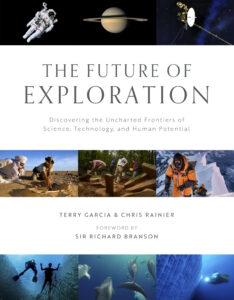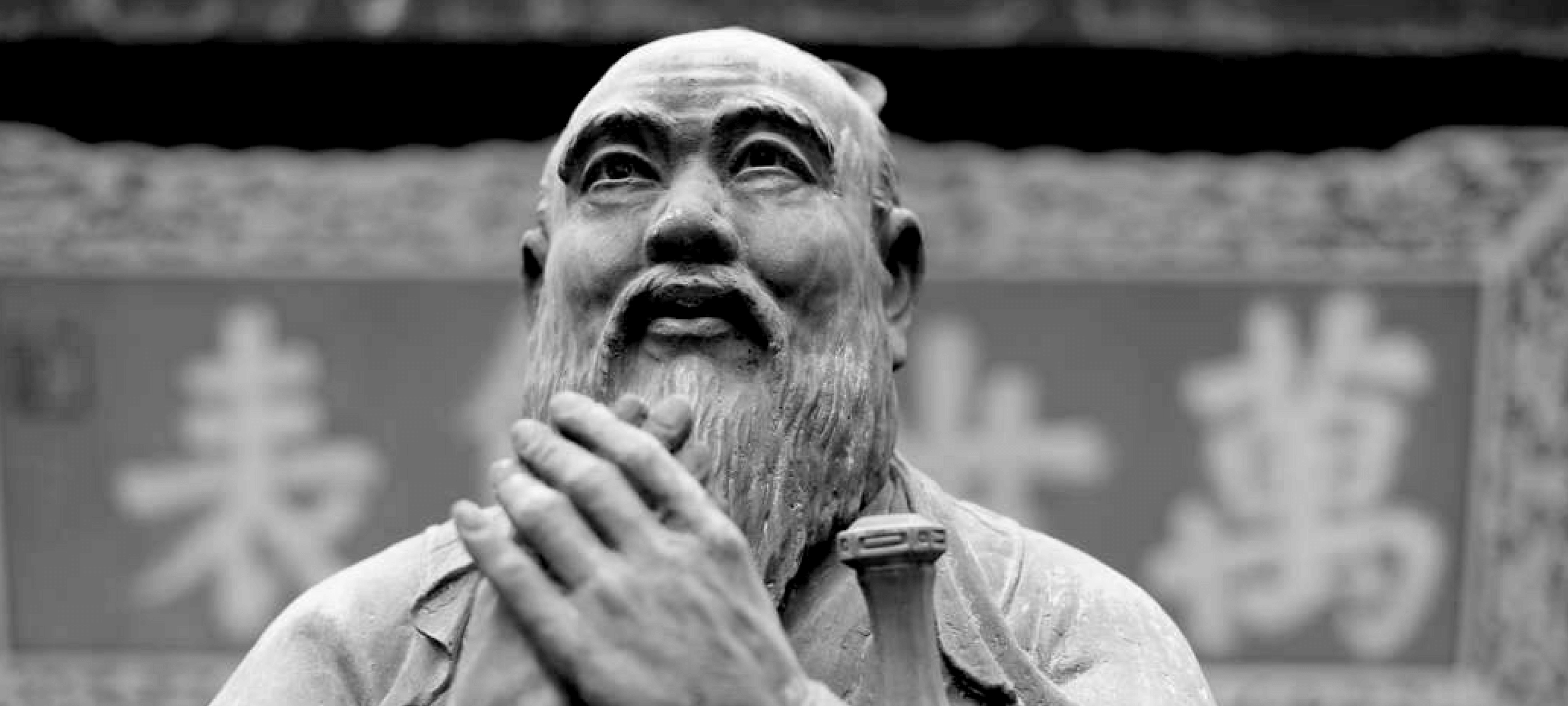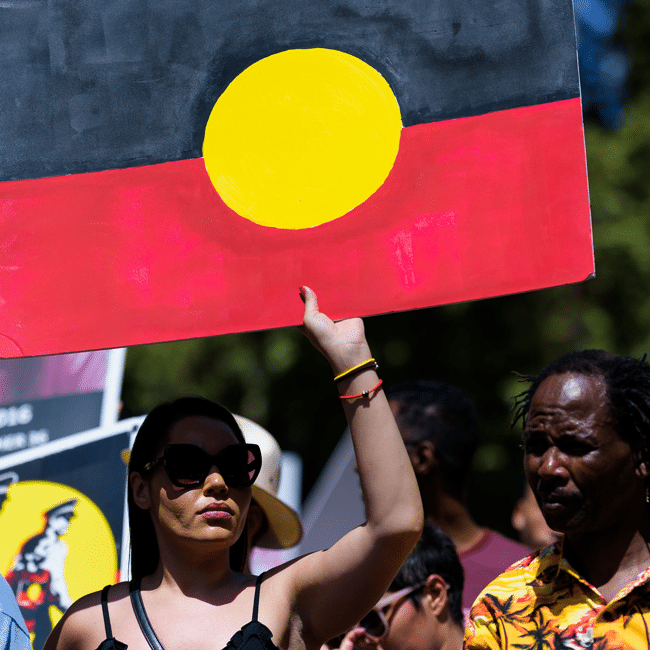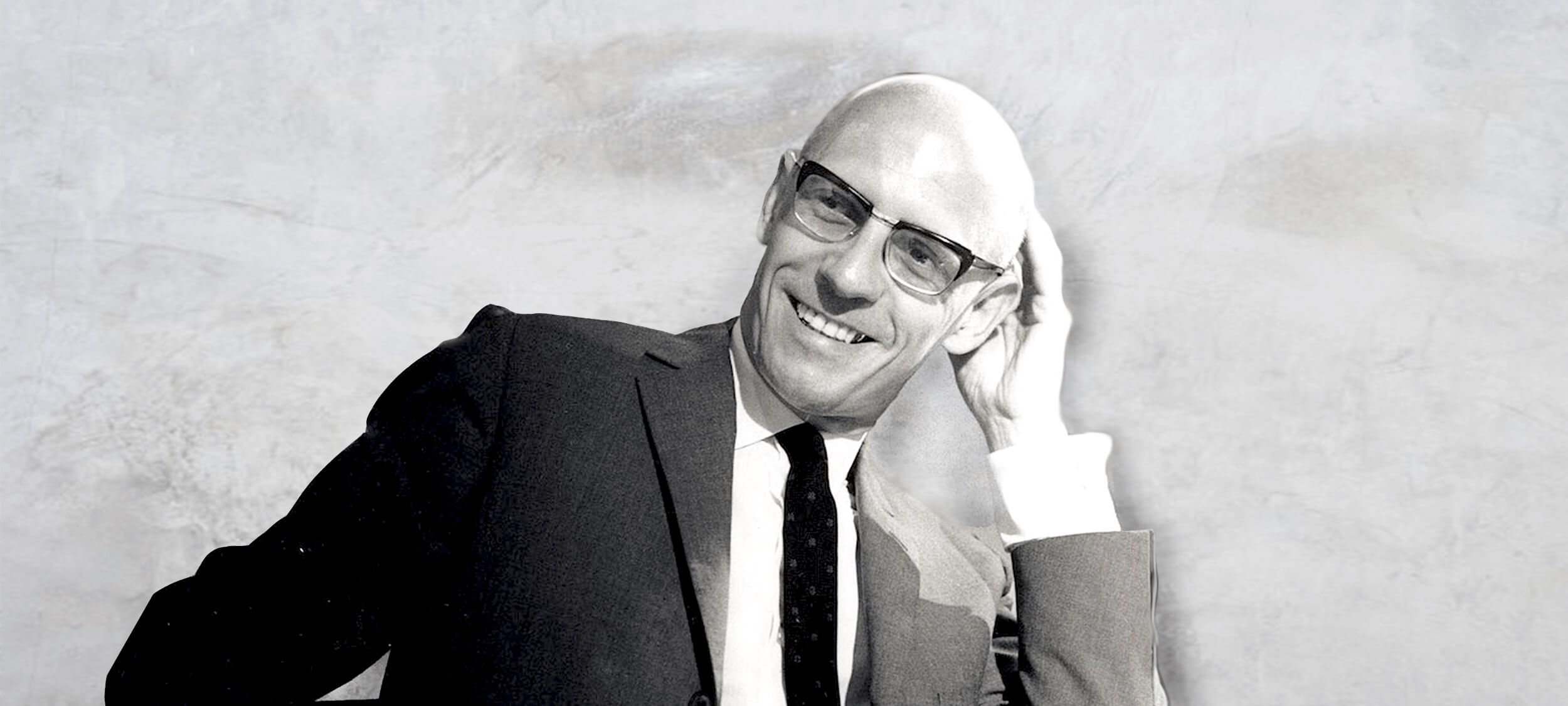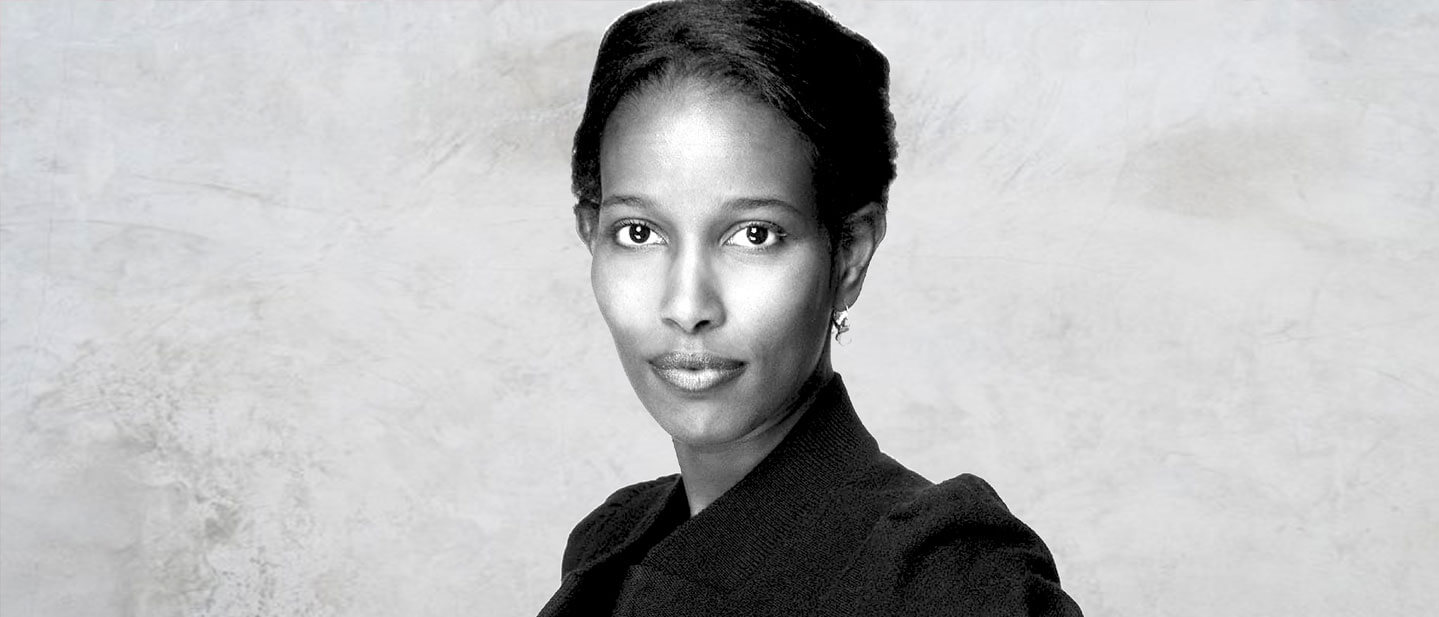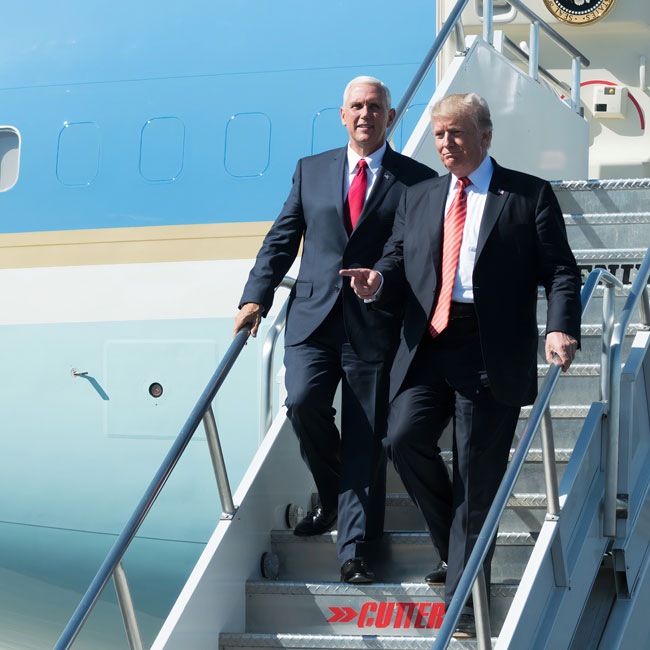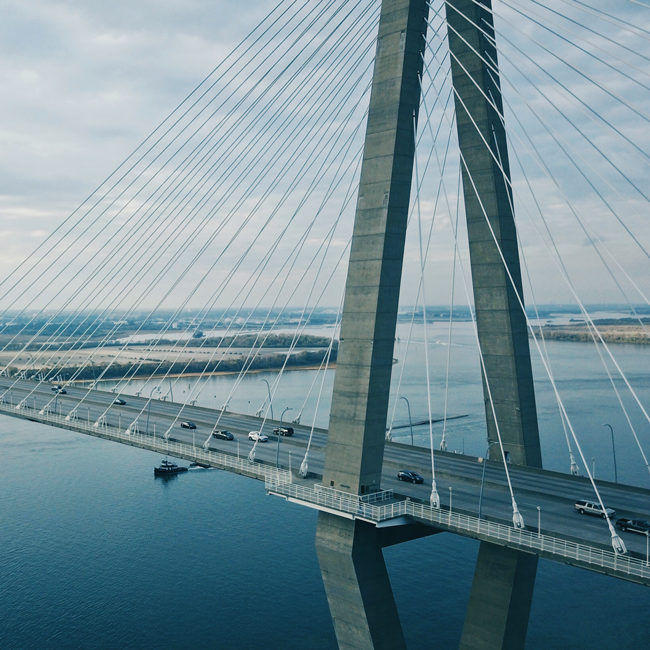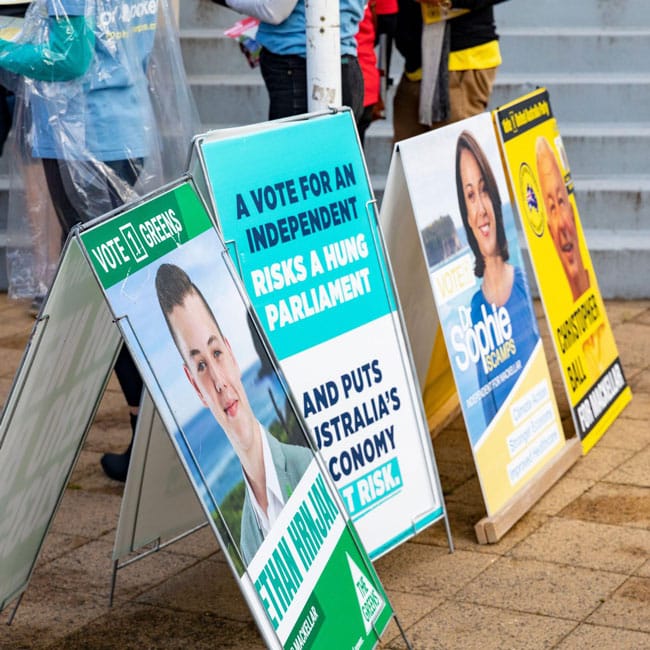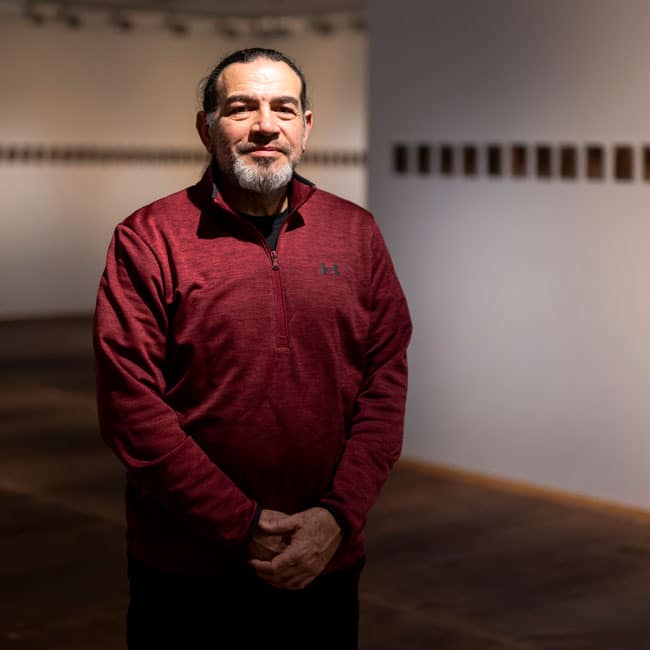The ethics of exploration: We cannot discover what we cannot see

The ethics of exploration: We cannot discover what we cannot see
Opinion + AnalysisRelationshipsScience + Technology
BY Simon Longstaff 2 NOV 2023
For many years, I took it for granted that I knew how to see. As a youth, I had excellent eyesight and would have been flabbergasted by any suggestion that I was deficient in how I saw the world.
Yet, sometime after my seventeenth birthday, I was forced to accept that this was not true, when, at the end of the ship-loading wharf near the town of Alyangula on Groote Eylandt, I was given a powerful lesson on seeing the world. Set in the northwestern corner of Australia’s Gulf of Carpentaria, Groote Eylandt is the home of the Anindilyakwa people. Made up of fourteen clans from the island and archipelago and connected to the mainland through songlines, these First Nations people had welcomed me into their community. They offered me care and kinship, connecting me not only to a particular totem, but to everything that exists, seen and unseen, in a world that is split between two moieties. The problem was that this was a world that I could not see with my balanda (or white person’s) eyes.
To correct the worst part of my vision, I was taken out to the end of the wharf to be taught how to see dolphins. The lesson began with a simple question: “Can you see the dolphins?” I could not. No matter how hard I looked, I couldn’t see anything other than the surface of the waves and the occasional fish darting in and out of the pylons below the wharf. “Ah,” said my friends, “the problem is that you’re looking for dolphins!” “Of course, I’m looking for dolphins,” I said. “You just told me to look for dolphins!” Then came the knockdown response. “But, bungie, you can’t see dolphins by looking for dolphins. That’s not how to see. What you see is the pattern made by a dolphin in the sea.”
That had been my mistake. I had been looking for something in isolation from its context. It’s common to see the book on the table, or the ship at sea, where each object is separate from the thing to which it is related in space and time. The Anindilyakwa mob were teaching me to see things as a whole. I needed to learn that there is a distinctive pattern made by the sea where there are no dolphins present, and another where they are. For me, at least, this is a completely different way of seeing the world and it has shaped everything that I have done in the years since.
This leads me to wonder about what else we might not see due to being habituated to a particular perspective on the world.
There are nine or so ethical lenses through which an explorer might view the world. Each explorer will have a dominant lens and can be certain that others they encounter will not necessarily see the world in the same way. Just as I was unable to see dolphins, explorers may not be able to see vital aspects of the world around them—especially those embedded in the cultures they encounter through their exploration.
Ethical blindness is a recipe for disaster at any time. It is especially dangerous when human exploration turns to worlds beyond our own. I would love to live long enough to see humans visiting other planets in our solar system. Yet, I question whether we have the ethical maturity to do this with the degree of care required. After all, we have a parlous record on our own planet. Our ethical blindness has led us to explore in a manner that has been indifferent to the legitimate rights and interests of Indigenous peoples, whose vast store of knowledge and experience has often either been ignored or exploited.
Western explorers have assumed that our individualistic outlook is the standard for judgment. Even when we seek to do what is right, we end up tripping over our own prejudice. We have often explored with a heavy footprint or with disregard for what iniquities might be made possible by our discoveries.
There is also the question of whether there are some places that we ought not explore. The fact that we can do something does not mean that it should be done. Inverting Kant’s famous maxim that “ought implies can,” we should understand that can does not imply ought! I remember debating this question with one of Australia’s most famous physicists, Sir Mark Oliphant. He had been one of those who had helped make possible the development of the atomic bomb. He defended the basic science that made this possible while simultaneously believing that nuclear weapons are an abomination. He put it to me that science should explore every nook and cranny of the universe, as we can only control what is known and understood. Yet, when I asked him about human cloning, Oliphant argued that our exploration should stop at the frontier. He could not explain the contradiction in his position. I am not sure anyone has yet clearly defined where the boundary should lie. However, this does not mean that there is no line to be drawn.
So how should the ethical landscape be mapped for (and by) explorers? For example, what of those working on the de-extinction of animals like the thylacine (Tasmanian tiger)? Apart from satisfying human curiosity and the lust to do what has not been done before, should we bring this creature back into a world that has already adapted to its disappearance? Is there still a home for it? Will developments in artificial intelligence, synthetic biology, gene editing, nanotechnology, and robotics bring us to a point where we need to redefine what it means to be human and expand our concept of personhood? What other questions should we anticipate and try to answer before we traverse undiscovered country?
This is not to argue that we should be overly timid and restrictive. Rather, it is to make the case for thinking deeply before striking out, for preparing our ethics with as much care as responsible explorers used to give to their equipment and stores.
The future of exploration can and should be ethical exploration, in which every decision is informed by a core set of values and principles. In this future, explorers can be reflective practitioners who examine life as much as they do the worlds they encounter. This kind of exploration will be fully human in its character and quality. Eyes open. Curious and courageous. Stepping beyond the pale. Humble in learning to see—to really see—what is otherwise obscured within the shadows of unthinking custom and practice.
This is an edited extract from The Future of Exploration: Discovering the Uncharted Frontiers of Science, Technology and Human Potential. Available to order now.
BY Simon Longstaff
Simon Longstaff began his working life on Groote Eylandt in the Northern Territory of Australia. He is proud of his kinship ties to the Anindilyakwa people. After a period studying law in Sydney and teaching in Tasmania, he pursued postgraduate studies as a Member of Magdalene College, Cambridge. In 1991, Simon commenced his work as the first Executive Director of The Ethics Centre. In 2013, he was made an officer of the Order of Australia (AO) for “distinguished service to the community through the promotion of ethical standards in governance and business, to improving corporate responsibility, and to philosophy.” Simon is an Adjunct Professor of the Australian Graduate School of Management at UNSW, a Fellow of CPA Australia, the Royal Society of NSW and the Australian Risk Policy Institute.
Ethics in your inbox.
Get the latest inspiration, intelligence, events & more.
By signing up you agree to our privacy policy
You might be interested in…
Opinion + Analysis
Relationships, Society + Culture
Meet Dr Tim Dean, our new Senior Philosopher
Big thinker
Politics + Human Rights, Relationships
Big Thinker: Confucius
Big thinker
Relationships, Society + Culture
Five Australian female thinkers who have impacted our world
Opinion + Analysis
Relationships
In defence of platonic romance
We are the Voice
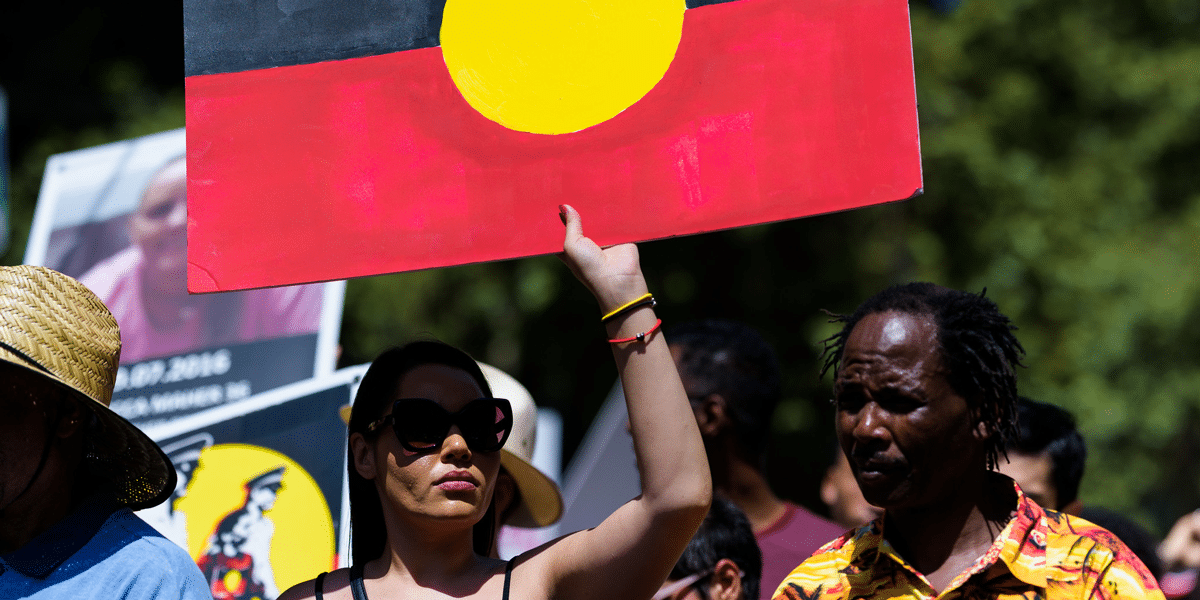
We are the voice! No monarch, no prime minister, no politician can decide how our democracy works. Only we, the people, voting as a whole, can resolve fundamental questions of how we will be governed – and by whom.
And so it has come to us to decide if and how to correct an historic injustice. First perpetrated by British colonists, through the doctrine of ‘terra nullius’ and then compounded by those who drafted the now repealed Section 127 of our nation’s most sacred political document, the Australian Constitution, our ‘original sin’ was to deny the prior existence of Indigenous peoples occupying, for millennia, the territories we now call Australia.
With mixed motivations – some virtuous and some vicious – the colonists sought to silence those whose lands they occupied. Guns, germs and steel – all did their work aided by policies of cultural suppression and assimilation. Yet, while sometimes just a whisper, at other times a mighty roar, the voices of our First Peoples have continued to echo across the lands and waters that make up our modern nation.
The descendants of our First Peoples have now asked us to repair the jagged rip in the fabric of our shared history. Their request is that this be done through the one means directly controlled by Australia’s citizens – an amendment to our Constitution. Their request is that this act of constitutional recognition be in the form of listening. They merely wish to be heard in relation to laws that directly affect their lives. That is all. No right of veto. No right to decide. Not even a right to determine how their voice is to be heard – for that is a matter reserved to Federal Parliament. Just a right to be recognised and heard as a distinct voice, amongst the many others, enshrined in our Constitution.
The debate about how to respond to this request has been intense – occasionally rancorous, confusing and ill-informed. So, here are some of the most important questions to have emerged during the course of debate:
Is the proposal to create the Voice racist?
No. The Voice is intended to recognise First Peoples based on their heritage not their race. As a whole, Aboriginal and Torres Strait Islanders carry within their veins the blood of many races. Some of the staunchest opponents of the voice acknowledge this as a personal truth. The proposed constitutional recognition does not privilege race, it merely recognises people based on their descent from those who held original sovereignty over the lands and waters that, collectively, make up Australia.
Is it not just as wrong to recognise descent as it is race?
Not necessarily so. The Act that establishes the Australian Constitution already applies this principle in Section 2 which reads:
The provisions of this Act referring to the Queen shall extend to Her Majesty’s heirs and successors in the sovereignty of the United Kingdom.
It is the principle of ‘descent’ that made the late Queen Elizabeth our monarch – as it makes Charles our King – as will it make his son and his son rule over us for as long as we remain a constitutional monarchy.
Aren’t Aboriginal and Torres Strait Islanders divided on this question?
Yes. Some, like critics, such as those amongst the Blak Sovereign movement, demand much more. Others fear that adding a new voice to our Constitution will perpetuate division between the descendants of the First Peoples and those without those ancestral connections. Even so, it is estimated that around 80% of First Nations people support the proposal to recognise them in the Constitution through the establishment of an enshrined Voice to parliament and Government.
However, we should no more expect unanimity amongst our First Peoples than we do amongst any other group. Indigenous people are as divergent in their political opinions as is any other group of Australians.
Besides, if you read the minutes of the earliest constitutional conventions it soon becomes evident that virtually every clause in the current Constitution has been the subject of fierce debate and heated controversies. So, disagreement about potential clauses in our Constitution is nothing new. It is the ‘bread and butter’ of constitutional development and reform.
Is there any guarantee that a Voice will rapidly improve the lives of First Nations people?
A ‘yes’ vote will not immediately solve the problems of post-colonial poverty and disadvantage that blights the lives of so many descendants of our First Peoples. Nor will every grievance be reconciled. But things will be better than before. There will be reasons to hope that progress is possible. Also, it’s pretty clear that what we have been trying up until now has not been working.
What if we change our mind about the need for a Voice?
If at some time in the future the job of listening is done and reconciliation is practically complete, then we can always undo what I hope we will do, together, on October 14th. That’s the most important fact about our Constitution. Nothing is set in stone. Everything can be remade in whatever form the citizens of Australia prefer, from time to time. If something does not work, we can just change it.
Isn’t it undemocratic to confer rights on some citizens that are not enjoyed by others?
Yes, but that is already how our Constitution operates. Australian citizens living in the NT and ACT only have four Senators representing their interests (2 each). Tasmanians have 12 Senators – despite having a population smaller than that of the combined territories. We do not hear too many protests about the ‘undemocratic’ nature of this arrangement.
However, what exactly is the ‘right’ being accorded to First Peoples? And is it a right denied to any others citizen? In fact, the proposed amendment merely confers a right to make representations – and nothing more – which is the same right enjoyed by any Australian citizen whether making representations as an individual, as a member of community defined by ethnicity, faith, location, etc.
How can we vote on constitutional change without first having all of the details about how it will work?
The Australian Constitution contains little detail about how the powers of the Australian Parliament and Government are to be exercised. The Constitution merely lists, in general terms, the various ‘heads of power’ (e.g. see Section 52) – and then leave the rest to parliament and the government to decide the detail. Exactly the same approach is being taken with the proposed Voice. If ‘certainty’ was a precondition for voting in favour of the Constitution, as originally drafted and proposed, then it would never have been passed. Why do we require certainty in this matter alone?
I will be voting ‘yes’ in the referendum. I will do so because I want us to fill a gaping hole in our Constitution. Those who drafted the original document it did a pretty good job. But they left out a crucial ingredient – and we are all poorer for that mistake. The Australian Constitution brought into existence a new nation by preserving the Colonial States in a federation. Even New Zealand was included! But they left out the oldest parts of our nation – the multiple sovereign Indigenous states that existed prior to colonisation. No smaller than places like Monaco, Lichtenstein and San Moreno, our pre-colonial states had well-defined borders, enforceable laws, governance structures and so on.
Like a car without a boot or, a birthday cake without candles or, a paragraph without punctuation, our Constitution works well enough. But it is not complete. It is time that this error was corrected by according our First Peoples a modest but honoured place in our Constitution.
I sincerely believe that the creation of the Voice will benefit the whole nation – not just its First Peoples. It will be a bridge that connects the ancient voice of our country with the modern. It will enable crossings in both directions; making us, as a people, both distinctive and whole.
We are the voice. We need utter just one word to create a new reality… ‘yes’.
For everything you need to know about the Voice to Parliament visit here.
Ethics in your inbox.
Get the latest inspiration, intelligence, events & more.
By signing up you agree to our privacy policy
You might be interested in…
Big thinker
Politics + Human Rights, Relationships
Big Thinker: Michel Foucault
Explainer
Society + Culture, Politics + Human Rights
Ethics Explainer: Just Punishment
Opinion + Analysis
Society + Culture, Politics + Human Rights
Who gets heard? Media literacy and the politics of platforming
Big thinker
Politics + Human Rights
Big Thinker: Ayaan Hirsi Ali
BY Simon Longstaff
Simon Longstaff began his working life on Groote Eylandt in the Northern Territory of Australia. He is proud of his kinship ties to the Anindilyakwa people. After a period studying law in Sydney and teaching in Tasmania, he pursued postgraduate studies as a Member of Magdalene College, Cambridge. In 1991, Simon commenced his work as the first Executive Director of The Ethics Centre. In 2013, he was made an officer of the Order of Australia (AO) for “distinguished service to the community through the promotion of ethical standards in governance and business, to improving corporate responsibility, and to philosophy.” Simon is an Adjunct Professor of the Australian Graduate School of Management at UNSW, a Fellow of CPA Australia, the Royal Society of NSW and the Australian Risk Policy Institute.
Barbie and what it means to be human

Barbie and what it means to be human
Opinion + AnalysisRelationshipsSociety + Culture
BY Simon Longstaff 7 AUG 2023
It was with a measure of apprehension that I recently travelled to the cinema to watch Greta Gerwig’s Barbie.
I was conscious of being an atypical audience member – with most skewing younger, female and adorned in pink (I missed out on all three criteria). However, having read some reviews (both complimentary and critical) I was expecting a full-scale assault on the ‘patriarchy’ – to which, on appearances alone, I could be said to belong.
Warning: This article contains spoilers for the film Barbie
However, Gerwig’s film is far more interesting. Not only is it not a critique of patriarchy as a singular evil, but it raises deep questions about what it means to be human (whatever your sex or gender identity). And it does this all with its tongue firmly planted in the proverbial cheek; laughing not only at the usual stereotypes but, along the way, at itself.
The first indication that this film intends to subvert all stereotypes comes in the opening sequence – an homage to the beginning of Stanley Kubrick’s iconic film, 2001: A Space Odyssey. Rather than encountering a giant black ‘obelisk’ that reorients the history of humankind, a group of young girls wake to find a giant Margot Robbie looming over them in the form of ‘Stereotypical Barbie’. Until that time, the girls have been restricted to playing with baby dolls and learning the stereotypical roles allotted to women in a male-dominated world.

What happens next is instructive. Rather than simply putting aside the baby dolls in favour of the new adult form represented by Barbie, the girls embark on a savage work of destruction. They dismember the baby dolls, crush their skulls, grind them into the dirt. This is not a gentle awakening into something that is more ‘pure’ than what came before. From the outset, we are offered an image of humanity that is not one in which the divide between ‘good’ and ‘bad’, ‘dominant’ and submissive’, ‘peaceful’ and ‘violent’ is neatly allocated in favour of one sex or another. Rather, virtues and vices are shown to be evenly distributed across humanity in all its variety.
That the violent behaviour of the little girls is not an aberration is made clear later in the film when we are introduced to ‘Weird Barbie’. She lives on the margins of ‘Barbieland’ – both an outcast and a healer – whose status has been defined by her broken (imperfect) condition. The damage done to ‘Weird Barbie’ is, again, due to mistreatment by a subset of girls who treat Barbie in the same way depicted in the opening scenes. Then there is ‘Barbieland’ itself – a place of apparent perfection … unless you happen to be a ‘Ken’. Here, the ‘Patriarchy’ has been replaced by a ‘Matriarchy’ that is invested with all of the flaws of its male counterpart.
In Barbieland, Kens have no status of their own. Rather, they are mere cyphers – decorative extensions of the Barbies whom they adorn. For the most part, they are frustrated by, but ultimately accepting of, their status. The conceit of the film is an obvious one: Barbieland is the mirror image of the ‘real world,’ where patriarchy reigns supreme. Indeed, the Barbies (in all their brilliant variety) believe that their exemplary society has changed the real world for the better, liberating women and girls from all male oppression.
Alas, the real world is not so obliging – as is soon discovered when the two worlds intersect. There, Stereotypical Barbie (suffering from a bad case of flat feet) and Stereotypical Ken are exposed to the radically imperfect society that is the product of male domination. Much of what they find should be familiar to us. The film does a brilliant job of lampooning what we might take for granted. Even the character of male-dominated big business comes in for a delightful serve. The target is Mattel (which must be commended for its willingness to allow itself to be exposed to ridicule – even in fictional form).
Unfortunately, Ken (played by Ryan Gosling) learns all the wrong lessons. Infected by the ideology of Patriarchy (which he associates with male dominance and horse riding) he returns to Barbieland to ‘liberate’ the Kens. The contagion spreads – reversing the natural order; turning the ‘Barbies’ into female versions of the Kens of old.
Fortunately, all is eventually made right when Margot Robbie’s character, with a mother and daughter in tow, returns to save the day.

But the reason the film struck such a chord with me, is because it raises deeper questions about what it means to be human.
It is Stereotypical Barbie who finally liberates Stereotypical Ken by leading him to realise that his own value exists independent of any relationship to her. Having done so, Barbie then decides to abandon the life of a doll to become fully human. However, before being granted this wish by her creator (in reality, a talented designer and businesswoman of somewhat questionable integrity) she is first made to experience what the choice to be human entails. This requires Barbie to live through the whole gamut of emotions – all that comes from the delirious wonder of human life – as well as its terrors, tragedies and abiding disappointments.
This is where the film becomes profound.
How many of us consciously embrace our humanity – and all of the implications of doing so? How many of us wonder about what it takes to become fully human? Gerwig implies that far fewer of us do so than we might hope.
Instead, too many of us live the life of the dolls – no matter what world we live in. We are content to exist within the confines of a box; to not think or feel too deeply, to not have our lives become more complicated as when happens when the rules and conventions – the morality – of the crowd is called into question by our own wondering.
Don’t be put off by the marketing puffery; with or without the pink, this is a film worth seeing. Don’t believe the gripes of ‘anti-woke’, conservative commentators. They attack a phantom of their own imagining. This film is aware without being prescriptive. It is fair. It is clever. It is subtle. It is funny. It never takes itself too seriously. It is everything that the parody of ‘woke’ is not.
It is ultimately an invitation to engage in serious reflection about whether or not to be fully human – with all that entails. It is an invitation that Barbie accepts – and so should we.
Ethics in your inbox.
Get the latest inspiration, intelligence, events & more.
By signing up you agree to our privacy policy
You might be interested in…
Explainer
Politics + Human Rights, Relationships
Ethics Explainer: Critical Race Theory
Opinion + Analysis
Relationships
The philosophy of Virginia Woolf
Opinion + Analysis
Health + Wellbeing, Relationships
Should parents tell kids the truth about Santa?
LISTEN
Relationships, Society + Culture
Little Bad Thing
BY Simon Longstaff
Simon Longstaff began his working life on Groote Eylandt in the Northern Territory of Australia. He is proud of his kinship ties to the Anindilyakwa people. After a period studying law in Sydney and teaching in Tasmania, he pursued postgraduate studies as a Member of Magdalene College, Cambridge. In 1991, Simon commenced his work as the first Executive Director of The Ethics Centre. In 2013, he was made an officer of the Order of Australia (AO) for “distinguished service to the community through the promotion of ethical standards in governance and business, to improving corporate responsibility, and to philosophy.” Simon is an Adjunct Professor of the Australian Graduate School of Management at UNSW, a Fellow of CPA Australia, the Royal Society of NSW and the Australian Risk Policy Institute.
If politicians can’t call out corruption, the virus has infected the entire body politic

If politicians can’t call out corruption, the virus has infected the entire body politic
Opinion + AnalysisPolitics + Human Rights
BY Simon Longstaff 3 JUL 2023
Nothing can or should diminish the good done by Gladys Berejiklian. And nothing can or should diminish the bad. One does not cancel the other. Both are true. Both should be acknowledged for what they are.
Yet, in the wake of Independent Commission Against Corruption’s finding that the former premier engaged in serious corrupt conduct, her political opponent, Premier Chris Minns, has refused to condemn the conduct that gave rise to this finding. Other politicians have gone further, putting personal and political allegiance ahead of sound principle to promote a narrative of denial and deflection.
Political corruption is like a highly contagious virus that infects the cells of the brain. It tends to target people who believe their superior virtue makes them immune to its effects. It protects itself from detection by convincing its hosts that they are in perfect ethical health, that the good they do outweighs the harm corruption causes, that noble intentions excuse dishonesty and that corruption only “counts” when it amounts to criminal conduct.
By any measure, Berejiklian was a good premier. Her achievements deserve to be celebrated. I am also certain that she is, at heart, a decent person who sincerely believes she always acted in the best interests of the people of NSW. By such means, corruption remains hidden – perhaps even from the infected person and those who surround them.
In painstaking legal and factual detail, those parts of the ICAC report dealing with Berejiklian reveal a person who sabotaged her own brilliant career, not least by refusing to avail herself of the protective measures built into the NSW Ministerial Code of Conduct. The code deals explicitly with conflicts of interest. In the case of a premier, it requires that a conflict be disclosed to other cabinet ministers so they can determine how best to manage the situation.
The code is designed to protect the public interest. However, it also offers protection to a conflicted minister. Yet, in violation of her duty and contrary to the public interest, Berejiklian chose not to declare her obvious conflict.
At the height of the COVID pandemic, did we excuse a person who, knowing themselves to be infected by the virus, continued to spread the disease because they were “a good person” doing ‘a good job’? Did we turn a blind eye to their disregard for public health standards just because they thought they knew better than anyone else? Did it matter that wilfully exposing others to risk was not a criminal offence? Of course not. They were denounced – not least by the leading politicians of the day.
But in the case of Berejiklian, what we hear in reply is the voice of corruption itself – the desire to excuse, to diminish, to deflect. Those who speak in its name may not even realise they do so. That is how insidious its influence tends to be. Its aim is to normalise deviance, to condition all whom it touches to think the indefensible is a mere trifle.
This is especially dangerous in a democracy. When our political leaders downplay conflicts of interest in the allocation of public resources, they reinforce the public perception that politicians cannot be trusted to use public power and resources solely in the public interest.
Our whole society, our economy, our future rest on the quality of our ethical infrastructure. It is this that builds and sustains trust. It is trust that allows society to be bold enough to take risks in the hope of a better future. We invest billions building physical and technical infrastructure. We invest relatively little in our ethical infrastructure. And so trust is allowed to decay. Nothing good can come of this.
When our ethical foundations are treated as an optional extra to be neglected and left to rot, then we are all the poorer for it.
What Gladys Berejiklian did is now in the past. What worries me is the uneven nature of the present response. Good people can make mistakes. Even the best of us can become the authors of bad deeds. But understanding the reality of human frailty justifies neither equivocation nor denial when the virus of corruption has infected the body politic.
This article was originally published in The Sydney Morning Herald.
Ethics in your inbox.
Get the latest inspiration, intelligence, events & more.
By signing up you agree to our privacy policy
You might be interested in…
Opinion + Analysis
Business + Leadership, Politics + Human Rights
Who’s afraid of the strongman?
Opinion + Analysis
Business + Leadership, Politics + Human Rights
Survivors are talking, but what’s changing?
Opinion + Analysis
Politics + Human Rights
Why Anzac Day’s soft power is so important to social cohesion
Opinion + Analysis
Politics + Human Rights, Relationships
Adoption without parental consent: kidnapping or putting children first?
BY Simon Longstaff
Simon Longstaff began his working life on Groote Eylandt in the Northern Territory of Australia. He is proud of his kinship ties to the Anindilyakwa people. After a period studying law in Sydney and teaching in Tasmania, he pursued postgraduate studies as a Member of Magdalene College, Cambridge. In 1991, Simon commenced his work as the first Executive Director of The Ethics Centre. In 2013, he was made an officer of the Order of Australia (AO) for “distinguished service to the community through the promotion of ethical standards in governance and business, to improving corporate responsibility, and to philosophy.” Simon is an Adjunct Professor of the Australian Graduate School of Management at UNSW, a Fellow of CPA Australia, the Royal Society of NSW and the Australian Risk Policy Institute.
Self-interest versus public good: The untold damage the PwC scandal has done to the professions

Self-interest versus public good: The untold damage the PwC scandal has done to the professions
Opinion + AnalysisBusiness + Leadership
BY Simon Longstaff 7 JUN 2023
The unfolding PwC scandal could be considered nothing more than an especially egregious example of ethical failure with dire consequences.
However, there are deeper issues to be examined. The most obvious concerns the proper role of the Australian Public Service, and whether or not efforts by successive governments to hollow it out have caused damage that will take a generation to repair. Less obvious is the damage done to an essential component of Australia’s ethical infrastructure: the professions.
Australian governments have long been captivated by physical and technical infrastructure. Few politicians can resist the opportunity to don a hard hat and hi-vis vest when announcing new investment in road, rail, bridge and dam projects. There is equal pride in initiatives including the National Broadband Network, quantum computing and improved cybersecurity.
Unfortunately, there is little interest in the ethical “infrastructure” that determines the extent of public trust in major public- and private-sector institutions. Without that trust, reform becomes almost impossible – or only after untimely delays and great cost.
As with physical and technical infrastructure, the quality of a nation’s ethical infrastructure has tangible effects on a nation’s economy. For example, Deloitte Access Economics has estimated that just a 10% improvement in ethics, across Australia, would generate an extra A$45 billion in GDP each year.
What is ethical infrastructure?
There are many components to this ethical infrastructure. However, one of the most important is the professions – whose members influence nearly every aspect of our lives. To understand their distinctive role, one needs to recognise the difference between two “worlds”: those of the market on one hand, and the professions on the other.
The essential character of the market was defined by Scottish economist and philosopher Adam Smith. It is a place where self-interested actors satisfy the wants of others. Smith prohibits lying, cheating or the oppressive use of power – as all harm the free market. Self-interested conduct is mediated by the so-called invisible hand, which Smith argues leads to an increase in the stock of common good. Indeed, that is the test any market must pass: does it, in practice, make us all better off?
The second world – the professions – is, in two respects, the opposite of the market. First, members of the professions do not satisfy the wants of others; they are obliged to serve the interests of others. For example, a diabetic might want to consume a large block of chocolate. The market will happily satisfy this want as long as the customer can pay the tariff. However, a doctor will refuse to provide the chocolate because it is not in the interests of their patient to do so.
Second, professionals are obliged to put aside self-interest in favour of the public good. For example, as officers of the court, lawyers are obliged to help in the administration of justice. This takes precedence over duties to the client and to the profession. Only after all other interests have been served may a lawyer look to their self-interest. The same holds for the members of every true profession.
In recognition of this practice, society enters into a social compact with the professions. It accords status, and gives them access to certain work that others may not do. It establishes privileges (such as the shield laws that protect journalists’ sources). The quality of the social compact waxes and wanes over time – but can exist only for as long as the professions honour their commitment to reject the logic of the market.
The importance of independence
It is the ethical foundations of the professions – in particular the putting aside of self-interest – that makes it possible for Australian governments to outsource public-sector functions to large, professional consulting firms such as PwC. After all, governments have an inalienable duty to act solely in the public interest. It is inconceivable they would turn over any of their functions to a self-interested entity. That would be to invite the fox into the hen house.
Central to each of the “Big Four” consulting firms is their auditing practice. Compared with consulting, auditing is a minnow in terms of revenue and influence. However, there lies the core of accounting’s professional ethos with its commitment to what is true and fair.
Auditors should be the quintessential professionals – independent and divorced from the ethos of the market. So, when an auditing firm, like PwC, works for government, it is assumed they can be trusted. Until they cannot.
What impact will PwC’s behaviour have on other professions?
We do not know the full extent of what happened at PwC. However, it seems likely that, at some point, some part of the firm abandoned the world of the professions in favour of the market – placing self-interest before all other considerations.
Now we are left to wonder. Was this just a small part of PwC, or has the rot infected larger parts of the company? If the professional ethos of PwC has been corrupted, how is this risk being managed in other, similar organisations?
Most troubling of all, can society still rely on the social compact it has struck with the professions more generally? Or has this once-vital piece of ethical infrastructure fallen into disrepair?
Whether you care about the quality of our society, or the economy, or the possibility of progress, you should care about the quality of our nation’s ethical infrastructure. It’s time to reinforce what remains so it’s not all lost, through neglect, cynicism or indifference, and to our considerable cost.
This article was originally published in The Conversation.
Ethics in your inbox.
Get the latest inspiration, intelligence, events & more.
By signing up you agree to our privacy policy
You might be interested in…
Opinion + Analysis
Business + Leadership
How to build a successful culture
Explainer
Business + Leadership, Politics + Human Rights
Ethics Explainer: Liberalism
Opinion + Analysis
Business + Leadership, Society + Culture
A win for The Ethics Centre
Opinion + Analysis
Business + Leadership, Relationships
The future does not just happen. It is made. And we are its authors.
BY Simon Longstaff
Simon Longstaff began his working life on Groote Eylandt in the Northern Territory of Australia. He is proud of his kinship ties to the Anindilyakwa people. After a period studying law in Sydney and teaching in Tasmania, he pursued postgraduate studies as a Member of Magdalene College, Cambridge. In 1991, Simon commenced his work as the first Executive Director of The Ethics Centre. In 2013, he was made an officer of the Order of Australia (AO) for “distinguished service to the community through the promotion of ethical standards in governance and business, to improving corporate responsibility, and to philosophy.” Simon is an Adjunct Professor of the Australian Graduate School of Management at UNSW, a Fellow of CPA Australia, the Royal Society of NSW and the Australian Risk Policy Institute.
The future does not just happen. It is made. And we are its authors.

The future does not just happen. It is made. And we are its authors.
Opinion + AnalysisBusiness + LeadershipRelationships
BY Simon Longstaff 5 JUN 2023
Of late, I have been thinking about how to describe the impact of the work done by The Ethics Centre. It’s a surprisingly difficult thing to do because our greatest impact typically lies in our influence on what does NOT happen.
For example, when we assist or inspire a person to step back from making a disastrous decision, there is nothing to measure. We can measure the cost of disasters. We can measure the impact of the response to disasters. However, how do we measure the impact of a disaster averted?
Let’s consider this in a wider context. My abiding sense of today’s world is that we remain on the cusp of epoch-defining change. The sense of what is before us has led me back to binge-reading vast swathes of science fiction – and the worlds I encounter there are recognisably connected to our own. Yet, the unbounded power of the authors’ imagination invites the reader to be equally bold in contemplating ‘what might be’. Wondering about ‘what might be’ leads us to the realisation that we are each responsible, at least in part, for the future that actually emerges.
The future does not just happen. It is made. And we are its authors.
And that is why ethics matters. It is humanity’s best tool for the avoidance of disastrously bad decisions – and the nightmare worlds that emerge from them. More optimistically, ethics equips us to make brilliantly good decisions – and the wonderous possibilities that they entail.
We can see this at work in one topical example; the rise and rise of CHATGPT – the most famous of a growing suite of expert systems that already have the capacity to transform our lives. Predictably, there has been a slew of prophecies about the likelihood of both utopian and dystopian futures. The emergence of new technology is always accompanied by excessively optimistic and pessimistic views about its likely effects.
Less predictably, some of the architects of this technology have urged caution. Their call for a measure of self-restraint is not grounded in fear. They simply argue that it is irresponsible to unleash a powerful, transformative force without understanding what we do. In essence, we need to set the ethical parameters within which AI should be developed and deployed. If we get this right, then sound ethics will inform policy and practice that averts all manner of mischief. Yet, the impact of ethical restraint will go unmeasured. Despite this, The Ethics Centre remains actively engaged in work to support the development of ‘responsible AI’ – as evidenced by our joining the Responsible AI Network (RAIN) being led by the CSIRO.
The Centre’s work is aligned to three strategic priorities. First, we seek to exemplify and support good decision making. Second, we work to maintain an open civic space within which the issues facing our society can be discussed – even when there is much room for disagreement. Finally, we seek to strengthen the ‘ethical infrastructure’ of our society – so that they become trustworthy to the extent that the community will rely on its key institutions to exercise good judgement in the public interest. This is especially important to any society that faces major change. For example, the transition from fossil fuels to renewable energy raises the spectre that some communities (typically linked to older forms of power generation) will bear a disproportionate share of the burdens, while others reap the benefits. If we cannot trust our governments, businesses, regulators, or other institutions to get the balance right, then reform will be slowed or halted – to the detriment of all.
The economic cost of broken ‘ethical infrastructure’ is immense. As Deloitte Access Economics has estimated, a mere ten percent increase in ethics would, by itself, generate an additional $45 Billion dollars per annum in improved GDP. Even more remarkable is that this economic return could be generated, over time, with a one-off investment of only $30 Million in funds. It’s hard to think of a better return on investment. Yet, it remains elusive.
What Australia needs is a truly national institution to help the nation lean into the challenges we face. It needs to become a trusted source of advice for governments and other key decision makers. It needs to build the capacity of our nation’s leaders, in the public and private sectors, to make good decisions – across the board. It needs to support our institutions in their efforts to regain public trust. Only then, will the community allow itself to accept the fundamental reforms that will be necessary to make the most of the future.
The establishment of such an institution will be especially important in its implications for the generations of younger Australians who so readily embrace ethics – in a way that surpasses earlier generations who looked to organised religion for guidance. That is why the Centre is investing in a new youth strategy to engage, at an early stage, with the ethical leaders of the future.
The immediate effects of a significant investment in ethics will be impossible to see. The increase in prosperity will inevitably be attributed to the wisdom of those in power. What will remain invisible are the many acts of folly that sound ethics will have prevented.
That is our conundrum. It is also why we are so deeply grateful for the support provided to us by the individuals, foundations and organisations who support our work. The Ethics Centre begins every financial year without a cent of income ‘locked in’. Nobody ‘needs’ ethics … until they do. So, we remain vulnerable. But, perhaps, that might be one of our greatest strengths – because it keeps the Centre attuned to the fundamental needs of society. Irrelevance is not an option.
So, next time things go better than expected, spare a thought for the possibility that it was the invisible hand of ethics (and not the market) that produced the result. With luck – and the generous support of our donors – we can strengthen that hand for a better future.
With your support, The Ethics Centre can continue to be the leading, independent advocate for bringing ethics to the centre of everyday life in Australia. Click here to make a tax deductible donation today.
Ethics in your inbox.
Get the latest inspiration, intelligence, events & more.
By signing up you agree to our privacy policy
You might be interested in…
Opinion + Analysis
Business + Leadership
Why businesses need to have difficult conversations
Opinion + Analysis
Relationships, Science + Technology
If humans bully robots there will be dire consequences
Opinion + Analysis
Business + Leadership
Volt Bank: Creating a lasting cultural impact
WATCH
Relationships
Deontology
BY Simon Longstaff
Simon Longstaff began his working life on Groote Eylandt in the Northern Territory of Australia. He is proud of his kinship ties to the Anindilyakwa people. After a period studying law in Sydney and teaching in Tasmania, he pursued postgraduate studies as a Member of Magdalene College, Cambridge. In 1991, Simon commenced his work as the first Executive Director of The Ethics Centre. In 2013, he was made an officer of the Order of Australia (AO) for “distinguished service to the community through the promotion of ethical standards in governance and business, to improving corporate responsibility, and to philosophy.” Simon is an Adjunct Professor of the Australian Graduate School of Management at UNSW, a Fellow of CPA Australia, the Royal Society of NSW and the Australian Risk Policy Institute.
The Constitution is incomplete. So let’s finish the job
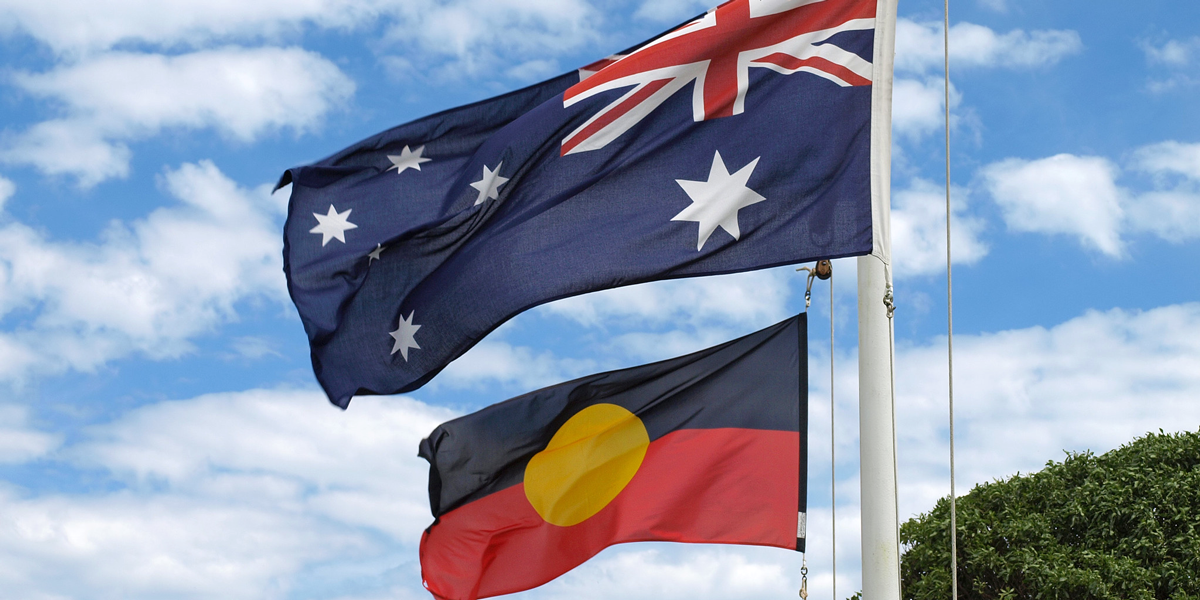
The Constitution is incomplete. So let’s finish the job
Opinion + AnalysisPolitics + Human Rights
BY Simon Longstaff 17 FEB 2023
On July 9, 1900, Royal Assent was given to the Commonwealth of Australia Constitution Act 1900. This act made provision for a series of sovereign colonial states to come together and form “one indissoluble federal commonwealth”. Section 6 of the act defines the states. It lists by name an initial seven colonies – and allows for others to be admitted at a later time.
“Hang on,” you might object, “everyone knows that there were, and are, only six states. What’s this nonsense about there being a seventh?”
Well, the framers of the Constitution wanted to recognise all of the smaller sovereign states that might make up the larger whole. So, the list included New Zealand. Indeed, when in 1902 the Commonwealth Parliament determined who could vote in federal elections, it singled out New Zealand’s Maori people for inclusion – while excluding the vast majority of Australia’s own Indigenous peoples.
This is breathtaking.
If you are wondering what any of this has to do with the proposed referendum about the Voice to Parliament, then consider this.
Those who put together the Constitution never finished the job. They left out those with the greatest claim to sovereignty of all.
Now we have the chance to finish the job – to make our Constitution whole.
We are on the cusp of resolving one of the most profound questions we face as citizens: will we afford constitutional recognition to the descendants of those First Nations peoples whose sovereignty was ignored by the European colonists?
A number of arguments have been put forward as reasons to oppose constitutional recognition of First Nations peoples in the form of a Voice to Parliament. Those arguments include that a Voice:
- Weakens First Nations’ claims to sovereignty.
- Will not lead to a tangible improvement in the lives of Indigenous peoples.
- Is “racist” and undemocratic in that it affords a privilege to one “race” over all others.
- Will increase legal uncertainty – especially when interpreting the Constitution.
In every case, framing the debate in terms of sovereignty helps us to see why these objections, while sincerely made, are not well founded.
It is feared, by some, that constitutional recognition will weaken the claims to sovereignty made by First Nations peoples. However, the Australian Constitution specifically preserves the sovereignty of each of the states that were recognised at Federation. Furthermore, all of their state laws remain intact. The only effect of the Constitution is to render state laws inoperative to the extent that they are inconsistent with valid Commonwealth legislation. Rather than destroying sovereignty, the Constitution recognises and preserves it – even as earlier laws become attenuated.
It might be objected that the First Nations of pre-colonial Australia were not “sovereign states”. However, they meet all of the accepted criteria. They may have been small – but size of territory or population does not matter (think of Monaco, Liechtenstein, Tuvalu and so on – all states). The First Nations had clearly defined borders. They had distinct laws – and processes for their enforcement. They traded – domestically and internationally (for example, centuries of trade between the Makassan people of modern Indonesia and the Anindilyakwa people of the Groote Eylandt archipelago, and others). They fought wars over people and resources and to defend their territory. All of this was anticipated by British law and policy. It was only blind ignorance and prejudice that stopped the colonists recognising the sophisticated array of states they encountered here.
A second objection is that constitutional recognition will do little or nothing to “close the gap”. Surely, Indigenous peoples have a far better idea of what is needed to address the enduring legacies of colonisation than do the rest of us. Certainly, they could not do a worse job than we have so far. So, I believe a Voice to Parliament will make a positive difference in the material circumstances of First Nations peoples. However, while important, this misses the point.
Imagine someone heading out into remote Queensland in 1899 – to tell the people living there that remaining as a crown colony might lead to better outcomes in the future. There would have been a riot in response to the suggestion that Queensland should be left a colony while the rest of the colonial states formed a federation. Even the West Australians decided to join – not because Federation guaranteed a better outcome for the people of each state, but because of the dignity it conferred on citizens of the newly established nation. It’s the same for those forgotten or ignored when the first round of Constitutional crafting was done.
The next “bad” argument claims that the creation of a Voice confers a benefit on one group of people because of their “race” – and that to do so is racist and undemocratic. Once again, the argument fails to take account of First Nations peoples as members of sovereign states. Those states existed – certainly in Natural Law (and probably more formally) for centuries prior to colonisation. The citizens of those states were exclusively Indigenous – not as a matter of racial policy but as a simple fact of history. The same would have been true of other ancient states in other parts of the world which, at one time or another, would have been made up of groups of people related through kinship and so on.
So, if we see our late recognition of the peoples of the First Nations through the lens of sovereignty and citizenship, there is necessarily going to be overlap between that citizenship and membership of a distinct group of related people.
This is not about privileging one “race” over another. It is simply acknowledging the fact that the citizens of the First Nations that we hope to recognise are all bound by a kinship grounded in deep history.
Finally, we come to the argument that an amendment to the Constitution will cause legal uncertainty – with the High Court spending wasted hours in interpreting the new provisions of an amended Constitution. If this is a valid reason for not amending the Constitution, then it is better that we should not have had a Constitution at all. Every clause in the Constitution of 1900 is open to interpretation by the High Court. Indeed, the High Court has spent a vast amount of time interpreting provisions (especially concerning the valid powers of the commonwealth). So, yes, an amendment might lead to disputes in the Federal and High Court. So what? That happens every day in relation to sections of the Constitution that are more or less taken for granted.
Finally, I am happy to see a decreasing number of people are arguing that the voice will be a “third chamber” of parliament. It will not. The Voice will be able to make representations and to advise – using whatever mechanisms the Commonwealth Parliament prescribes. The Voice will decide nothing on its own. It cannot veto any act of parliament or decision of government.
First Nations peoples have asked for something very modest. They want to be recognised. They simply want to be heard in relation to matters that have a direct bearing on their lives.
Our Constitution is a pretty good document. However, its authors left something out. While recognising the sovereignty of all others (even Fiji was in the mix for a while), they overlooked those with the best claim of all.
Imagine a fence made without a gate, a car without brakes and a cake without icing. They’ll work well enough. But they’re not complete. That’s the deficiency in our Constitution – it also works well enough, but it is not complete.
Let’s recognise what was forgotten. Let’s finish the job.
This article was first published in The Australian.
For everything you need to know about the Voice to Parliament visit here.
Ethics in your inbox.
Get the latest inspiration, intelligence, events & more.
By signing up you agree to our privacy policy
You might be interested in…
Opinion + Analysis
Business + Leadership, Politics + Human Rights
A foot in the door: The ethics of internships
Opinion + Analysis
Politics + Human Rights, Relationships
Want #MeToo to serve justice? Use it responsibly.
Opinion + Analysis, READ
Politics + Human Rights
How to find moral clarity in Gaza
Opinion + Analysis
Politics + Human Rights
A good voter’s guide to bad faith tactics
BY Simon Longstaff
Simon Longstaff began his working life on Groote Eylandt in the Northern Territory of Australia. He is proud of his kinship ties to the Anindilyakwa people. After a period studying law in Sydney and teaching in Tasmania, he pursued postgraduate studies as a Member of Magdalene College, Cambridge. In 1991, Simon commenced his work as the first Executive Director of The Ethics Centre. In 2013, he was made an officer of the Order of Australia (AO) for “distinguished service to the community through the promotion of ethical standards in governance and business, to improving corporate responsibility, and to philosophy.” Simon is an Adjunct Professor of the Australian Graduate School of Management at UNSW, a Fellow of CPA Australia, the Royal Society of NSW and the Australian Risk Policy Institute.
There are ethical ways to live with the thrill of gambling

There are ethical ways to live with the thrill of gambling
Opinion + AnalysisBusiness + LeadershipRelationships
BY Simon Longstaff 8 FEB 2023
The fun of betting on uncertain outcomes is not a problem. But addiction, organised crime and ubiquity make excessive gaming a social ill that needs a policy fix.
Debate about the regulation of gambling has intensified to the point where the sound and fury from all sides risks obscuring the central issues that must be addressed. With that in mind, I would like to offer a perspective on how the issue appears when viewed through the lens of ethics – rather than commerce or politics.
The essence of gambling is to take on risk in anticipation of a hoped for (but uncertain) reward. In that sense, pedestrians “gamble” when they try to save time by dodging through traffic rather than walking to a designated crossing. The same goes for those who make an “educated guess” when investing in equities. Like the punter who puts down a “prudent bet” – based on studying the form, visiting the track and so on – an active investor who takes into account “the fundamentals” is gambling.
However, not all forms of gambling are equal. Some are built around systems of probability that are consciously tuned so as to enable “the house” to win more than their customers lose over time. So long as everyone knows this, there is nothing problematic about this form of gambling. It’s perfectly acceptable to choose to spend money on entertainment.
So, if the practice of gambling is so innocuous, why all the fuss?
The answer is to be found in three forms of harm that, although external to the practice of gambling, have become intimately connected to it: addiction, organised crime and ubiquity.
First, the most serious harms caused by gambling are to individuals who become addicted to it. However, it is essential that we note that the “evil” is addiction – not gambling as such. Addiction to work or sex or chocolate is all deeply problematic for those who are afflicted. However, that does not make work, sex or chocolate intrinsically harmful.
Unfortunately, some parts of the gambling industry seek to exploit the addictive tendencies of some people. There are wicked individuals and organisations who seek out means to “hook” people on their gaming product. They do this through conscious design of machines, experiences, incentives … almost anything. There is no “accident” in this. The trap is deliberately set and snares whoever it can catch.
At the lower level of complicity are those who do not design to capture the addict – but rather fail to take adequate steps to protect them from harm.
Let’s avoid ‘wowserism’ of a kind that presents gambling as the problem. It is not.
It is perfectly acceptable to design for fun, excitement, or enjoyment. However, people in the gambling industry have a particular obligation to use all effective means to minimise the risk of harm to those who are susceptible to addiction. Failing to do so leads to tragic outcomes – and there is no way people in the industry can wash their hands of blame for what might reasonably have been prevented, if only a sincere effort had been made to do so. Instead, some try to block reforms, simply to advance their commercial interests.
Second, as law-enforcement agencies have highlighted – again and again – organised crime has got its hooks into the gaming industry. Criminals see their “regulated losses” as an acceptable cost to bear for the convenience of being able to “launder” vast amounts of cash through gambling.
Once again, the “evil” of organised crime is not intrinsic to the practice of gambling. Crime is pernicious wherever it rears its ugly head. It is simply an unfortunate fact of history that, for selfish reasons, criminals have developed a close association with the gaming industry. However, there is nothing necessary about that connection – which can and should be severed.
Finally, there is the problem of “ubiquity”. One of my earliest published articles on this topic noted that while there is nothing intrinsically wrong with, say, church choirs, it would be unspeakably destructive of the common good to place one on every street corner. You can have too much of even the best things (not sure that church choirs count).
Gambling is everwhere! This is especially so now that the “gambling bug” lives inside our phones and other communication devices. I have seen the banking records of a person who, having been driven to an insane level of addiction, lost all the money awarded in a workers’ compensation payment by placing one bet … every six seconds.
The fact that a gaming company allowed this to happen is disgusting. It is almost as bad that we saturate our world with advertising that pretends this is never anything more than “a bit of fun with one’s friends”.
What does all of this mean for the current debate? First, let’s avoid “wowserism” of a kind that presents gambling as the problem. It is not.
However, if we wish to enjoy the fun of ethical gaming we must choose the means, as a society, to eliminate (or at least ameliorate) the evils of addiction, organised crime and ubiquity.
Despite claims to the contrary, the technology required for cashless gaming is already developed. It should be used with default daily betting limits that apply across all forms of gaming – on the track, in casinos, in clubs, online … wherever. And while we’re at it – can we regulate gambling advertising so that it does not invade every aspect of our lives … especially not those of children who are at risk of being convinced that betting on sport is better than playing it.
Some people doubt it is possible to run profitable gaming enterprises without exploiting the deadly trio of addiction, organised crime and ubiquity. I do not agree. Difficult? Yes. Impossible? No. Given that gambling can be a source of innocent joy, I think the effort is worth it.
This article was first published in The Australian Financial Review.
Disclosure: The Ethics Centre works with individuals and organisations committed to improving the ethical dimension of their business, including companies that either directly or incidentally have a connection with gambling.
Ethics in your inbox.
Get the latest inspiration, intelligence, events & more.
By signing up you agree to our privacy policy
You might be interested in…
Big thinker
Politics + Human Rights, Relationships
Big Thinker: Confucius
Opinion + Analysis
Relationships, Science + Technology
Should you be afraid of apps like FaceApp?
Opinion + Analysis
Business + Leadership, Politics + Human Rights
Housing affordability crisis: The elephant in the room stomping young Australians
Opinion + Analysis
Relationships
Why have an age discrimination commissioner?
BY Simon Longstaff
Simon Longstaff began his working life on Groote Eylandt in the Northern Territory of Australia. He is proud of his kinship ties to the Anindilyakwa people. After a period studying law in Sydney and teaching in Tasmania, he pursued postgraduate studies as a Member of Magdalene College, Cambridge. In 1991, Simon commenced his work as the first Executive Director of The Ethics Centre. In 2013, he was made an officer of the Order of Australia (AO) for “distinguished service to the community through the promotion of ethical standards in governance and business, to improving corporate responsibility, and to philosophy.” Simon is an Adjunct Professor of the Australian Graduate School of Management at UNSW, a Fellow of CPA Australia, the Royal Society of NSW and the Australian Risk Policy Institute.
When are secrets best kept?

Throughout the ages, people subject to the torments of even the most oppressive regimes have found solace in the fact that even when their bodies are controlled, their minds can remain free.
People have the capacity to hold information and beliefs that cannot be discerned by any mind other than their own. Of course, in many cases (but not all) the mental reserves needed to preserve a secret can be destroyed by those who employ torture. However, only the most vicious and desperate resort to such despicable acts – and even then, they can never be sure that what they are told is actually true. But that is another topic for another time.
For now, I want to highlight the remarkable strength of secrets – a strength conferred by their retention in regions of the human mind that are inaccessible to others.
The fact that we cannot ‘read minds’ allows each of us a particular kind of freedom.
However, it would be a lonely existence if we were not also endowed with the capacity to share our thinking with others through all of the forms of communication available to us – physical, verbal, literal, and symbolic. So, for the most part, we liberally share our thoughts, feelings and beliefs in word and deed – while retaining some things entirely to ourselves.
While this is the context in which secrets exist, it’s important to note the distinction between ‘having’ and ‘holding’ secrets. In the first case, secrets can be our own – something that we know we choose not to disclose to others. In the second case, secrets can ‘belong’ to someone else who has shared them with us – on the condition we preserve the secrecy of what has been disclosed.
There are many examples of both kinds of secret. For example, a person may have suffered some kind of sexual assault in their youth but, for a range of reasons, may never disclose this to another soul. It will be their secret – and they will take it to the grave. Alternatively, if they share this secret with another person – on the condition that no other person ever know this truth – then the latter person will have agreed to hold the secret for as long as required to do so by the person whose secret has been shared with them.
It’s easy to see in this example just some of the problems with secrets. Let’s suppose that the person who abused the youth is still at large – possibly still offending. Does the person who ‘holds’ the secret have an obligation to prevent harm that is greater than the obligation to protect their friend’s secret? One might hope that the friend would agree to reveal the identity of the malefactor. However, what if they refuse? What if a person at risk of abuse asks a direct question about the person whom you know to be a threat to them? Are you required to lie or to dissemble in order to keep the secret?
Of course, the ability to have and to hold secrets can also enable great evil. For example, some secrets can obscure damaging, false beliefs that – even if sincerely held – present grave risks to individuals or whole communities. We can see such ‘secret knowledge’ at work in certain cults and conspiracy theories. Because secret, these sometimes deadly false beliefs cannot be challenged or amended by exposure to the ‘sunlight’ of open enquiry and debate. Deadly secrets can fester and grow in the dark to the point where they can poison whole sections of the community.
What’s more, perverse forms of secrecy can be employed by powerful interests as a tool to control others. Whole regimes have been propped up by ‘secret police’, the cloaking of wrongdoing behind the veil of ‘official secrets’, and so on.
The ethics of secrets have a practical bearing on matters affecting individuals, groups and whole societies. Core questions include: Is there a distinction between a ‘confidence’ and a ‘secret’? Do certain people have a right to know information that others wish to keep secret? Are we ever obliged to disclose another person’s secret? What, if anything, is a ‘legitimate secret’? Who decides questions of legitimacy? How does one balance the interests of individuals and society?
Join Dr Simon Longstaff on Thur 23 Nov as he lifts the lid on secrets and their role in living an ethical life. The Ethics of Secrets tickets on sale now.
Ethics in your inbox.
Get the latest inspiration, intelligence, events & more.
By signing up you agree to our privacy policy
You might be interested in…
Opinion + Analysis
Health + Wellbeing, Relationships
Confirmation bias: ignoring the facts we don’t fancy
Opinion + Analysis
Relationships, Society + Culture
The ‘good ones’ aren’t always kind
Opinion + Analysis
Health + Wellbeing, Relationships
Is it ok to visit someone in need during COVID-19?
Opinion + Analysis
Relationships
Elf on the Shelf is a fun and festive way to teach your child to submit to the surveillance state
BY Simon Longstaff
Simon Longstaff began his working life on Groote Eylandt in the Northern Territory of Australia. He is proud of his kinship ties to the Anindilyakwa people. After a period studying law in Sydney and teaching in Tasmania, he pursued postgraduate studies as a Member of Magdalene College, Cambridge. In 1991, Simon commenced his work as the first Executive Director of The Ethics Centre. In 2013, he was made an officer of the Order of Australia (AO) for “distinguished service to the community through the promotion of ethical standards in governance and business, to improving corporate responsibility, and to philosophy.” Simon is an Adjunct Professor of the Australian Graduate School of Management at UNSW, a Fellow of CPA Australia, the Royal Society of NSW and the Australian Risk Policy Institute.
We are on the cusp of a brilliant future, only if we choose to embrace it

We are on the cusp of a brilliant future, only if we choose to embrace it
Opinion + AnalysisBusiness + LeadershipPolitics + Human Rights
BY Simon Longstaff 22 JUN 2022
Speaking a couple of days after the 2022 Federal Election, renowned Australian journalist, Stan Grant, noted that although the election of the Albanese government had been a moment of national ‘catharsis’, it was more difficult to discern in the result a commitment to a clear, positive direction for the nation. In that sense, the future shape of Australia remained an ‘open question’.
This was not to deny that the Australian electorate seemed to express, through their vote, a few clear preferences: an end to the debilitating ‘climate wars’, higher standards of integrity in federal politics and more generally, a preference for a more diverse and inclusive form of representation in our national parliament and government.
There is every reason to believe that these expectations will be met. Indeed, one might be encouraged to hope for something more. For example, it was remarkable that the first utterance of Prime Minister Albanese, on claiming victory, was to promise a referendum to enshrine in the Constitution an Indigenous ‘Voice to Parliament’ as called for in the Uluru Statement From The Heart. The surprise in this was that this issue had barely been mentioned during the election campaign – yet had clearly loomed large in the mind of the new PM.
So, what else might we aim to achieve as a democratic nation endowed with the most fortuitous circumstances of any nation on earth? Yes, despite the current ‘doom and gloom’, we are on the cusp of a truly brilliant future – if only we choose to embrace it.
We have everything any society could need: vast natural resources, abundant clean energy and an unrivalled repository of wisdom held in trust by the world’s oldest continuous culture supplemented by a richly diverse people drawn from every corner of the planet. However, whether this future can be grasped depends not on our natural resources, our financial capital, or our technical nous. The ultimate determinant lies in our character.
Three forces can shatter our path to prosperity. First, enemies from without who seek to exploit our grievances and divide our nation into warring factions. Second, a collective fear of the unknown and a lack of trust in those who would lead us there. Third, a lingering, persistent doubt about the legitimacy of a society that violently dispossessed the first peoples of our continent.
Each of these threats can be neutralised – if only we have the collective will and the courage to do so. With this in mind, I have outlined below a set of core, national objectives that I think would secure the endorsement of a vast majority of Australians. It is the realisation of these objectives that will unlock the brilliant future that is available to all Australians.
In five years, we can fashion a society that is at ease with itself and its place in the world. We can have sown the seeds out of which will grow a universal sense of belonging – a gift bestowed by First Nations people who have only ever asked for respect, truth and justice. That sense of unfettered connection, informed by an Indigenous understanding of country that has grown over time immemorial, will be the glue that binds us into one people of many parts. Once established and reinforced, nothing will dissolve that bond.
In five years, we can grow the confidence to embrace radical change – confident that no individual or group will be asked to bear a disproportionate burden while others take an unfair share of the gains. Our commitment to a broadly egalitarian society will move from myth to reality. While we may not all rise to equal heights, no one will be left to fall into the depths of neglect or obscurity. This will allow us to be brave, to take risks and to harvest the rewards of doing so.
In five years, we can be better led. Confidence can be restored in our governments – that they will truly honour their democratic obligation to act solely in the public interest – whether in their use of public resources or in the policies and practices they adopt.
In five years, the aged, the sick and infirm should be cared for by a workforce who are properly valued and rewarded for their support of the most vulnerable.
In five years, all Australians should have a genuine opportunity to make a home for themselves in affordable, secure accommodation.
In five years, everyone should feel more safe and secure in their homes, their workplaces, their cities and towns.
In five years, a confident Australia can build and reinforce enduring alliances with nations who share our desire to live in a just and orderly world free from the heavy yoke of authoritarian governments.
All of this is possible. For the most part our physical and technical infrastructure is world class. Our ethical infrastructure could be better. We need to invest in this area – confident that in doing so we will unlock both social and economic benefits of staggering proportions. As Deloitte Access Economics has estimated, a mere 10% increase in the level of ethics in Australia would lead to an increase in GDP of $45B (yes, billion) every year – not through some kind of ‘magical effect’ but as a direct consequence of the increased trust that better ethics would create.
Do this and we can embrace the brilliant future that beckons us.
With your support, The Ethics Centre can continue to be the leading, independent advocate for bringing ethics to the centre of life in Australia. Click here to make a tax deductible donation today.
Ethics in your inbox.
Get the latest inspiration, intelligence, events & more.
By signing up you agree to our privacy policy
You might be interested in…
Opinion + Analysis
Business + Leadership, Relationships
Treating citizens as customers is a recipe for distrust
Reports
Politics + Human Rights
The Cloven Giant: Reclaiming Intrinsic Dignity
Opinion + Analysis
Society + Culture, Politics + Human Rights
Freedom of expression, the art of…
Big thinker
Politics + Human Rights, Science + Technology

